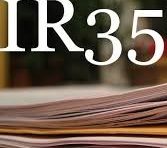Is it unlawful to ban a Muslim employee from wearing her hijab (Islamic headscarf) when in contact with clients?
The recent French case of, ‘Bougnaoui -v- Micropole SA’ heard in the Court of Justice of the European Union (CJEU) advised that the answer was yes. The Advocate General has now provided an opinion on the facts. (It is important to note that the Advocate General’s opinion is not binding, it is the role of the Advocate General to propose to the Court, in complete independence, a legal solution to the cases for which they are responsible).
The facts of the case
• Ms Bougnaoui, a practising Muslim was employed by Micropole SA as a design engineer. Ms
Bougnaoui wore a hijab (Islamic headscarf) at work and when she visited clients. When
wearing the hijab, her head was covered but her face was exposed.
• A client complained to Micropole SA, and made a request that there should be “no veil next
time”. As a result, Ms Bougnaoui was asked by her employer not to wear her hijab when
visiting clients. She refused to comply with this request and was subsequently dismissed.
• The case heard in the French Labour Tribunal dismissed Ms Bougnaoui’s claim for
discrimination based on her religious beliefs. The Tribunal held that the dismissal was well
founded on the basis of a “genuine and serious reason”. This decision was appealed.
The case was then referred to the Court of Justice of the European Union (CJEU) for a preliminary ruling on whether; Micropole’s policy requiring an employee to remove her hijab when in contact with clients, was a “genuine and determining occupational requirement”, under Article 4(1) of the Equal Treatment Directive (2000/78/EC). (This directive establishes a general framework for equal
treatment in employment).
Advocate General Sharpston concluded that;
• the dismissal of an employee who is a practising Muslim on the ground that she refuses to
comply with an instruction from her employer that she is not to wear a hijab when in contact
with clients of the business, amounted to unlawful direct discrimination on the grounds of
religion or belief.
• the prohibition on direct discrimination extends to manifestations of religion or belief (in this
case wearing a hijab). Ms Bougnaoui was treated less favourably on the grounds of her
religion than a comparator would have been treated in a comparable situation.
• discrimination would only be lawful if it based on an “occupational requirement”, which was
“genuine” and limited to matters which are absolutely necessary in order to undertake the
professional activity in question.
Interestingly this decision is in contrast to the opinion of Advocate General Kokott presiding over the case of ‘Achbita v G4S Secure Solutions NV’, which we reported on in our July edition of Peach Press. The Achbita case concluded that prohibiting an employee from wearing a headscarf can be justified by an employer’s general policy of neutrality, where the ban is applied consistently to all visible signs of religious or philosophical beliefs.
We would advise all employers to take a cautious approach when dealing with matters such as these as you can see there are conflicting approaches. Seek legal advice before taking any action.


